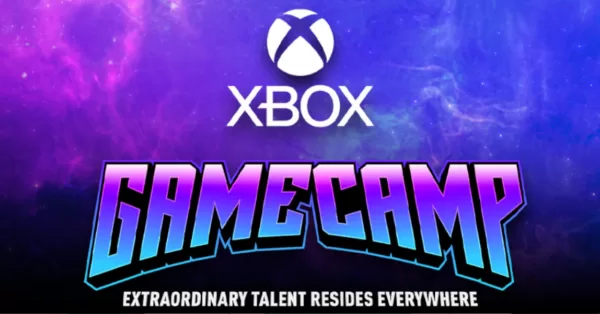Interview: Taktyl Studios’ James Ronald Lo on the Filipino gaming landscape and Game Camp Asia
James Ronald Lo shares his views on how the Filipino game development scene will grow in the coming years.

Recently, we were able to get some interesting insight into the Filipino gaming landscape courtesy of James Ronald Lo, the Co-Founder and CEO of Taktyl Studios, and a member of Game Developers Association of the Philippines.
After getting to chat with developers over at Ranida Games regarding their experience in Game Camp Asia, Xbox also gave us an opportunity to send over some questions to James Ronald Lo, an industry veteran who has collaborated with Xbox to support Filipino game developers.
We got to ask Lo via email about how the participants of Game Camp Asia were selected, along with their feedback on the program. Asisde from these, we also asked Lo about his insights on the Filipino gaming scene, both on the developers’ and players’ sides.
What was the recommendation process like for Game Camp Asia?
JRL: The recommendation process for Game Camp Asia involved evaluating studios based on their readiness, potential, and team capacity for delivery. We looked at how well-prepared they were to use the camp’s resources and mentorship, their growth potential through innovative game concepts, and their ability to effectively execute and deliver projects. This thorough assessment helped ensure that the selected studios were well-positioned to benefit from the opportunity and achieve significant results.
What is the general feedback from the Game Camp Asia participants?
JRL: Feedback from Game Camp Asia participants has been positive, with many valuing the mentorship, networking opportunities, and practical advice. They found the experience helpful for refining their projects and gaining industry insights.
What do you think are the biggest challenges facing Filipino game developers and studios right now?
JRL: The Philippine game industry is predominantly composed of outsourcing studios, which is beneficial but not sufficient for long-term growth. To truly advance the industry, it’s crucial for more local studios to release more original games. However, this shift is challenging due to limited access to expertise in developing financially successful games as well as adequate funding to bring the game in front of its target players.

What projects or efforts made by GDAP and Xbox for the PH gaming scene are you most proud of?
JRL: Our industry association, GDAP has been delighted to engage with Xbox through a range of collaborative initiatives. Xbox organized the Game Camp, where several of our studios were invited to participate, providing them with invaluable exposure and learning opportunities. Additionally, Xbox has been actively involved in numerous GDAP events, further supporting our community. Currently, Xbox is playing a crucial role in streamlining the process of bringing Xbox development kits into the country, which will significantly enhance our local developers’ access to essential tools and resources. Their continued support and active participation are instrumental in advancing the Philippine gaming industry.
Based on the current landscape, what do you think is in store for the Filipino video game industry in the next 3-5 years?
JRL: In the next 3-5 years, I anticipate significant growth for the Filipino video game industry. We can expect a rise in indie games being released not only for mobile and desktop platforms but also for consoles like Xbox. The number of local studios is likely to increase, leading to a greater volume of indie releases. Additionally, I foresee improved collaboration between the government, educational institutions, and the private sector, which will provide stronger support systems, enhance skill development, and drive innovation in the industry.
From your point of view, what preferences or trends do Filipino gamers have that are unique compared to other countries/regions?
JRL: Filipino gamers exhibit unique preferences compared to other regions. They tend to favor mobile games due to widespread smartphone use and affordable data plans, leading to a strong preference for games that are accessible and easy to play on the go. Additionally, Filipino gamers show a keen interest in social and multiplayer games, reflecting a culture that values community and shared experiences. Finally, competitive gaming and esports are gaining traction, with local players actively participating in both regional and international tournaments, highlighting a passion for professional gaming.
You can find out more about Taktyl Studios at its official website.

